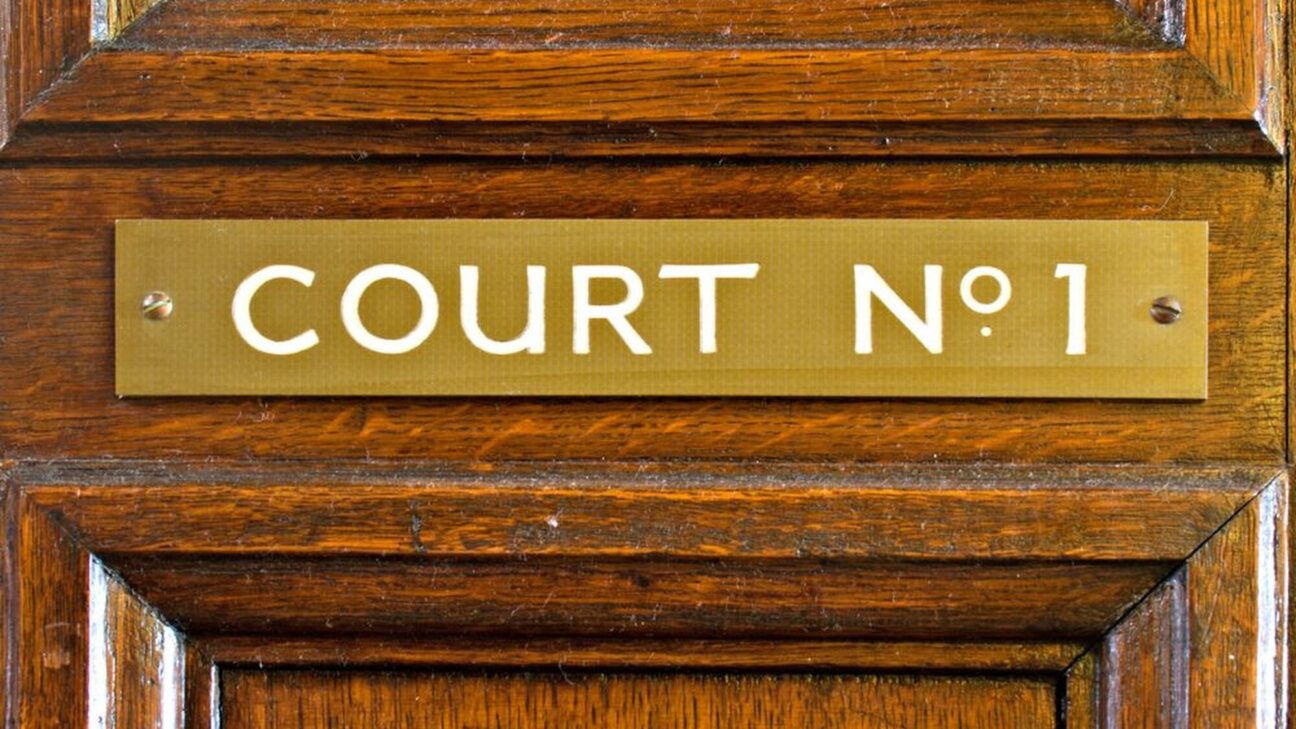Illinois’ new law, the Pretrial Fairness Act (PFA), is best known because it eliminated financial conditions of release (often called money bond). Equally important, though less covered, is the system created to replace money—one that includes a right to representation, due process, and clear legal standards for intentional pretrial release and detention decisions.
Under the PFA, everyone arrested is entitled to be released before trial unless they are eligible for detention under the new law and the prosecutor moves for detention. In those cases, a critical element of the new legal framework is the pretrial detention hearing, where judges make evidence-based and legally justified decisions about whether someone is detained before trial.
Following in the footsteps of jurisdictions like New Jersey and the federal system, Illinois is the most recent to abandon a wealth-based detention system. Bethany McLean (pictured above), an assistant public defender in Kane County, Illinois, described the difference she has seen since the PFA went into effect.
“Before we had these [first appearance] hearings, it was more like rattling off a ton of information, and it would just zip by, and there’s our result,” she said. “The shift in those hearings makes it feel like an actual process. There’s more transparency and it feels like a formal process where somebody is advocating for [the person accused].”
During pretrial detention hearings observed in Illinois—which take roughly 30 minutes—the proceedings begin with the judge explaining to the person the nature of the charges and the purpose of the hearing. Then, the prosecutor presents arguments and evidence supporting the need for pretrial detention. Their burden is to convince the court, through clear and convincing evidence, that no conditions of release can reasonably assure the safety of the community or another person, or prevent the person from fleeing. Then, a public defender vigorously represents the person charged, arguing for release with conditions that could mitigate any such concerns.
“There is a clear standard that must be met, and I can argue how the state did not meet it,” McLean said. “It is a formal process with a court reporter making a complete record of the proceeding, which contributes to the transparency.”
Throughout the process, the judge speaks directly to the person accused, explains what is happening, and asks if they understand. At the end of arguments, the judge makes a decision and explains that both sides have the right to appeal.
A Stark Contrast
Most Americans, if they were to find themselves standing before the bench—accused of a crime and hoping to secure their freedom—might expect a similar process. They might believe decisions would be made based on clear legal standards and evidence, with the presumption of innocence and right to due process upheld.
Unfortunately, the informed and thoughtful hearings observed in Illinois are the exception rather than the rule.
In most places, detention hearings do not happen at all. Instead, there is a single hearing, the first appearance, that occurs soon after someone is arrested and only lasts a few minutes. People whose liberty is at stake may not have defense representation, and financial conditions of release are used in most cases. Judges rarely order people to be detained before trial. Instead, detention is determined by whether or not a person can pay.
In addition, the hurried and cursory process means prosecutors and defenders (if present) do not have time to prepare arguments and evidence about detention. The high rates of pretrial detention—nearly 70 percent in U.S. jails—are at odds with the U.S. Supreme Court’s unequivocal position that pretrial detention must be “the carefully limited exception.”
Elements of a Detention Hearing
Detention hearings are vital to ensure people are not detained before trial unless a judge has decided deliberately and through due process. There are three elements typically required before a detention hearing is held. The charge must be eligible for detention under state law, the prosecutor must request the hearing, and the judge must determine that the hearing is warranted.
Because a person’s freedom is on the line, detention hearings must be held within several days of the first appearance hearing. At the detention hearing, the court hears evidence from the prosecution, the person accused, and defense counsel. Evidence may include the facts of the current charge, criminal history, and other factors like the person’s employment and family and community connections.
After the hearing, a judge explicitly decides whether to release or detain, and their decision is on the record. The decision may be appealed, and the record created at the detention hearing, using evidence and a reasoned decision, means a higher court can facilitate a meaningful review.
Benefits of a Clear, Transparent Process
Rather than guessing at a dollar amount that the accused cannot afford—and purposefully operating a money-based detention system—detention hearings better enable courts to detain only those shown to warrant pretrial incarceration.
The process upholds fundamental American legal principles, like the presumption of innocence and the right to physical liberty. Indeed, the Supreme Court wrote that without a right to release before trial, “the presumption of innocence, secured only after centuries of struggle, would lose its meaning.”
New Jersey, which instituted intentional detention hearings and all but eliminated financial conditions of release in 2017, has seen the benefits of this new system. “The change was total. Freedom was once based on how much money was in your wallet. It changed to the risk that you presented to society. The result has been a society that is more free, more fair, and more safe,” said Judge Martin G. Cronin (ret.), New Jersey Superior Court.
Eliminating Unintentional Detention
When decisions are not deliberate, people who could be safely released are detained, while people who pose a risk to community safety are released. Relying on financial release conditions also distorts justice for poor people, especially poor people of color, because they are caught up in the system more frequently and treated more harshly. This, in turn, creates a vicious cycle by taking money away from the people who have the least.
For example, requiring a poor person to pay $500 can trap them in jail. By the time family and friends can come up with the money to pay for their release, the time in jail has destabilized their lives: bills have mounted, and they can lose their jobs, making it harder to pay for food, rent, medication, and life necessities.
“It’s hard to overstate the benefits of our current system to our clients. The people who are detained now are largely the ones who were detained before on high bond. But now it’s fairer and more deliberate. For the rest, we can spend more time investigating their cases and representing them since we aren’t rushing to make plea deals simply to get them out of jail,” said Margaret Butler, First Assistant Deputy Public Defender of New Jersey
Where Detention Hearings Are Used
Pretrial detention hearings are incorporated into court procedures in Arizona, Illinois, New Jersey, New Mexico, and the District of Columbia, but are not routine elsewhere. These jurisdictions serve as models for other states. While several still use money bonds to some extent, they have each established rules and processes for purposefully considering detention through a fair and timely hearing.
While nearly half of states authorize some use of preventive detention, many have narrowly limited it, typically to capital crimes or those that could result in life imprisonment, according to the National Center for State Courts. And many of these states lack constitutional provisions, legislation, or court rules that articulate sufficient due process safeguards or procedural guidance for implementation. As a result, these states continue to rely heavily on financial release conditions, resulting in wealth-based detention.
Tears of Relief
McLean describes the experience of being booked into jail as humiliating and terrifying for many people. Now, public defenders in Illinois meet privately with their clients before their hearing, and they know who will face a detention hearing and who will be released.
For those in a pretrial detention hearing, McLean says, “It is not always good news, but sometimes it is. But at least there’s a calmness to the process and people are treated as individuals.” For those who will be released, she says, “I see more tears of relief than before when I couldn’t tell somebody, ‘Hey, you’re getting out today.’ People are scared, they’re away from their kids. They might lose their job. And I would say that my favorite part is seeing the relief when I tell them, ‘Let’s start with, you’re getting out today.’”





